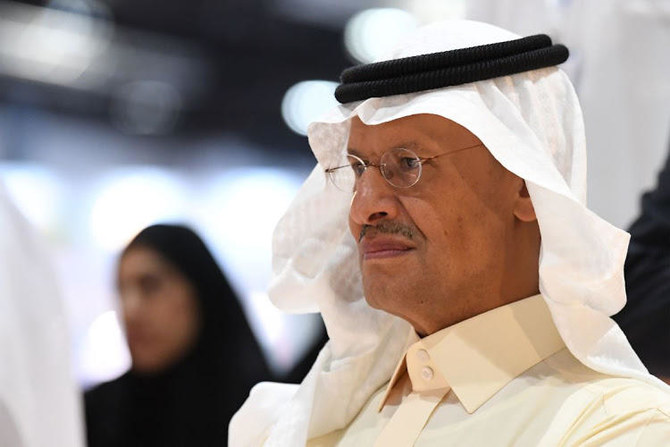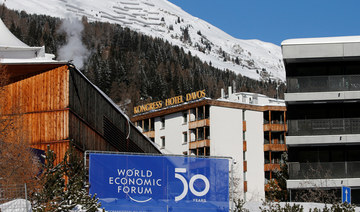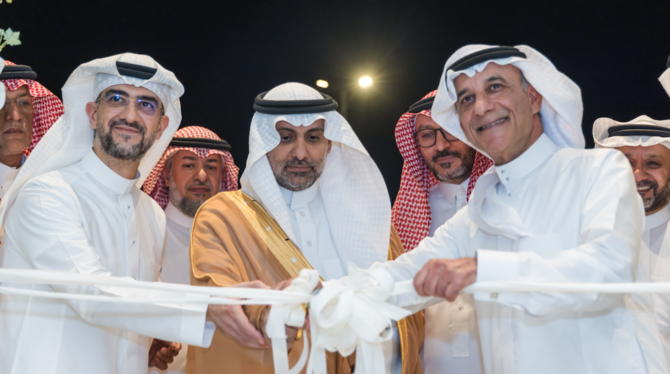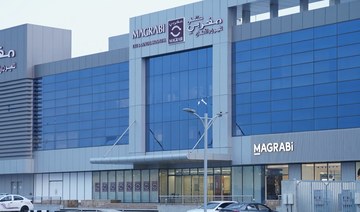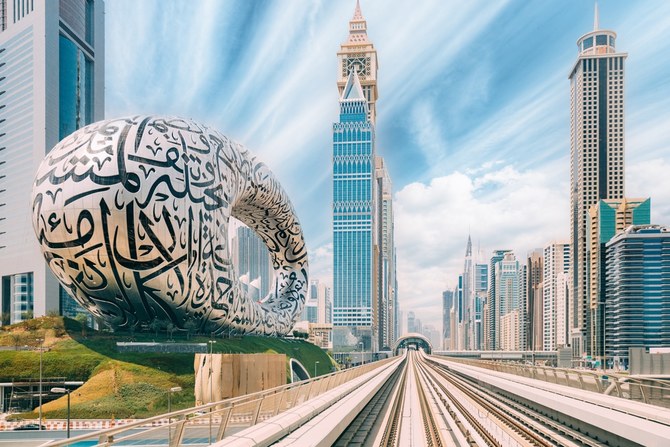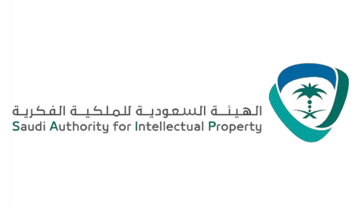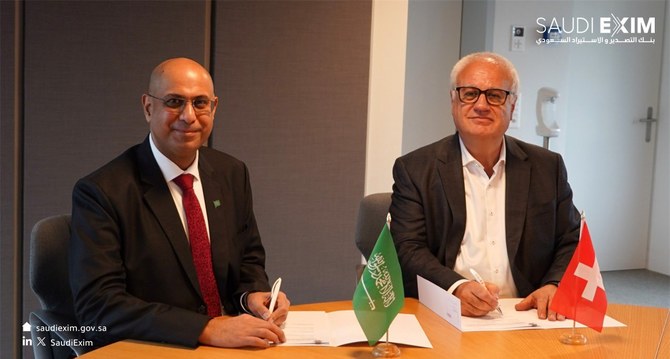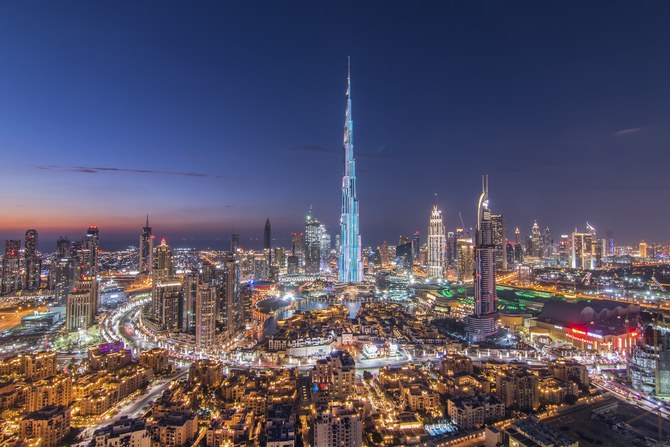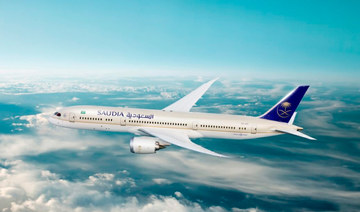DAVOS: Saudi Energy Minister Prince Abdulaziz bin Salman mounted a strong defense of the Kingdom’s record on climate change and clean energy production at a special event during the annual meeting of the World Economic Forum in Davos.
On a panel titled, “The Future of Fossil Fuels,” with other energy industry leaders, the prince told delegates that Saudi Arabia was a “pioneer” in many areas of clean energy production and usage, and that it had taken big steps toward diversifying its energy mix.
“My job is to promote Saudi Arabia, of course, but on this issue I’m proud to do so, because we are doing it all,” he said, before outlining “clean energy” policies in detail.
“We have developed the idea of the circular carbon economy, and we are pioneers of carbon sequestration at Aramco, as well as measures on upstream and downstream efficiency. We have the lowest carbon cost in production and extraction.
“We have reduced domestic consumption and the energy intensity of our economy by many percentage points. We are converting cars to be more efficient, as well as other gadgets, to be more efficient than any in the world. And we manufacture them too,” he added.
Climate change and environmental concerns have dominated the opening two days of the Davos gathering, with fears expressed by corporate executives as well as environmental activists about what some have called an impending “catastrophe.”
Prince Abdulaziz, at his first Davos as energy minister, said that the Kingdom, as one of the world’s biggest oil producers and exporters, had a duty to play its part in the energy transformation away from fossil fuels, but had other responsibilities as well.
“We are involved in a transformative effort to combat climate change. But we will preserve our liquids (crude oil) because we owe it to the world to export our liquids. We are converting our power sector and its energy mix to a point where by 2030 I am confident we will become one of the top producers of solar energy and renewables.
“I am keen to deliver on this because I have a boss called (Crown) Prince Mohammed bin Salman who is all over me to ensure we become one of the top producers. I can make a pledge and a commitment that by 2030 we will see our entire power sector, with the exception of some remote areas, changing to gas and renewable energy,” he added.
He spoke of the embryonic nuclear industry in the Kingdom, where Saudi policymakers were seeking international partners for the peaceful use of nuclear power. “We’re also getting involved in nuclear, because we want to have all our options open.”
But he also warned about setting unrealistic targets for moving away from fossil fuels, with some environmental campaigners calling for an immediate reduction in fossil-fuel usage to cut carbon emissions and reverse climate-change trends.
“Honestly we have to be realistic. Some people say that in two years from now oil consumption would have to start coming down. Can anybody in this room say with a sensible mind how you come to that reality?” the minister said.
Also on the panel, moderated by Daniel Yergin, the eminent historian of the energy industry, were Maria Fernanda Suarez, energy minister of Columbia, Patrick Pouyanne, chairman and chief executive of French oil company Total, and Wan Zulkiflee Wan Ariffin, president and chief executive of Malaysian energy giant Pertronas.
All were united in their desire to make the global energy community more aware of and effective in dealing with climate change.
Suarez said: “Ending energy emissions is the most important challenge the energy industry can address.” The Colombian government is facing opposition over plans to develop its considerable shale oil reserves.
Colombia is also keen to move toward more gas production in place of oil, which was a transition echoed by Pouyanne and Ariffin, though there were challenges with production of liquefied natural gas against a background of rising supply and falling prices. “I think we will be oversupplied in the period 2024 to 2027 when lots of new gas projects will come on stream, so short term there will be weaker prices, but longer term there could be a step up in prices,” the Malaysian business leader said.
Pouyanne backed the Saudi view on the importance of balancing global energy demands with environmental needs. “The world needs more energy. We have a growing population and people want social and economic development. The challenge is how to produce more energy with less emissions,” he said.
Prince Abdulaziz said that it was important for more developed countries not to tell emerging economies how to conduct their energy affairs.
“This is not about promoting oil, or gas, or renewable, it is about promoting prosperity and sustainability. There is a lot of growth that needs to happen, in terms of wellbeing of the economies of Africa, Asia and elsewhere. These places need to move away from poverty toward a pattern of sustainable development and a level of industrialization. They don’t need to carry the burden of the previous industrialization. It is not fair; it is not equitable.
“I always hated the idea of top-to-bottom approaches. There is this element of condescension but (developed countries) are only attending to their own interests, and it does not address those economies at a different level of development and aspiration,” the prince added.
He said that Saudi Arabia would not be “intimidated” by activists telling it how to manage its energy policy. “We’re cool and calm in Saudi Arabia and attend to our own agenda. I have always to advise people to avoid being manipulated and intimidated.”
On the question of oil prices, he refused to be drawn into making a forecast, but hinted that the “dark, pessimistic time” was lifting after the attacks on Saudi Aramco oil facilities last September.
“Since when have we seen a market where an entire country’s oil production has virtually come to a halt, and we see prices come down? It only happened because when we have Opec+,” he said, in reference to the agreement between oil exporters led by Saudi Arabia and Russia to limit crude output.
He noted that on the supply side, Libyan worries, Middle East tensions and American shale oil output would dominate oil market thinking in 2020.



